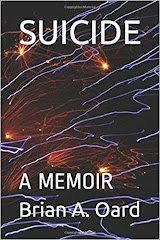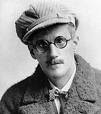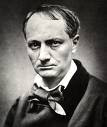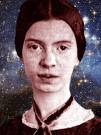Flaubert knew exactly why most early readers didn't like Sentimental Education. In conversation with an admirer he explained that "The public wants works that exalt its illusions, whereas Sentimental Education..." and here the author demonstrated the effect of his novel by forming an inverted pyramid with his hands and then opening them, casting readerly illusions into the abyss. In this respect, Wallace Shawn's The Designated Mourner is a most Flaubertian work. That's right, I just compared the short, fat, bald character actor who played the psychiatrist on Crossing Jordan to Gustave freakin' Flaubert. On the evidence of this single play (the only work by Shawn I've read), the fact that the playwright is better known as a character actor is almost as bizarre (indeed, unseemly) as the fact that Sam Shepard (my candidate for America's greatest living playwright and one of our best writers, period) is better known as the guy who's in all the Westerns, a kind of highbrow Slim Pickens. Before reading the play, I had known of Shawn's 'other life' via Louis Malle's marvelous films My Dinner With Andre (co-written by Shawn) and Vanya on 42nd Street, and the fact that he was 'also a playwright' (as they say) had shown up on my radar screen, but I hadn't imagined that he was such a fine and troubling writer. Immediately upon finishing my first reading I decided that this was one of those 'you gotta read this' books. Don't bother trying to summarize it; just press it into your friends' hands and say, "Here. You can thank me tomorrow."
The Designated Mourner is a political and cultural horror story, a tale of terror and tyranny as sickeningly plausible as Orwell's 1984. Shawn provides no set description, giving directors maximum freedom, but the play calls for a bare stage and stark lighting. As I read, I imagined the actors sitting in three metal folding chairs (preferably gray) facing the audience and arranged in some kind of wide semicircle. The house lights should be kept up so the audience can't sink back into shadowed anonymity. The confrontational element of the play should be maximized. For this is a deeply confrontational play, and therein lies its Flaubertian power. It's a weapon aimed to unsettle its elite, culturally sophisticated and/or upper class audience (and that is, after all, the only real audience for plays like this; everyone else escapes to Andrew Lloyd-Webber). The play challenges the very humanist, leftist and aesthetic assumptions that draw people to see it. Nor do the play's challenges stop there, for it also subverts itself. Indeed, it ends on such a self-deconstructive note, with a lyrical 'urban pastoral' description of evening in a park that implicitly indicts its own lyricism as a flight from a horrifying political reality. This is a marvelous, beautiful, complex, poet's play that should have made its author much better known. Unfortunately, Wallace Shawn lives and writes in a country where theater is only valued as a local anesthetic. We all need to recall the words of Emerson: "People wish to be settled; only as far as they are unsettled is there any hope for them."
While writing the above, I had another thought, a counter-thought. I wonder if Shawn's plays are seen by at least some members of his New York audiences as a kind of penance, a bit of good guilty liberal self-flagellation by which they can vicariously and masochistically atone for the other parts of their lives. Does a member of Shawn's audience secretly--or even unconsciously--think: "Okay, now that I've seen The Fever or The Designated Mourner, I can go back to my office at Merrill-Lynch tomorrow and exploit the world with a clear conscience"? Hmmm...sounds like the sort of question Wallace Shawn and Andre Gregory would talk about over dinner...
Saturday, June 6, 2009
Subscribe to:
Post Comments (Atom)










No comments:
Post a Comment